SBOA228 June 2021 OPA325 , TLV316 , TLV9062
| Input | Output | Supply | |||
|---|---|---|---|---|---|
| ViMin | ViMax | VoMin | VoMax | Vcc | Vee |
| –2.45V | +2.45V | 0.05V | 4.95V | 5V | 0V |
| Gain | Low Cut-off Frequency (fl) | High Cut-off Frequency (fh) | Vref |
|---|---|---|---|
| 1V/V | 1kHz | 10kHz | 1.25V and 2.5V |
Design Description
This circuit is a 2nd-order multiple feedback (MFB) band-pass (BP) filter. This BP filter is created by cascading a low-pass and a high-pass filter. Vref provides a DC offset to accommodate for single-supply applications.
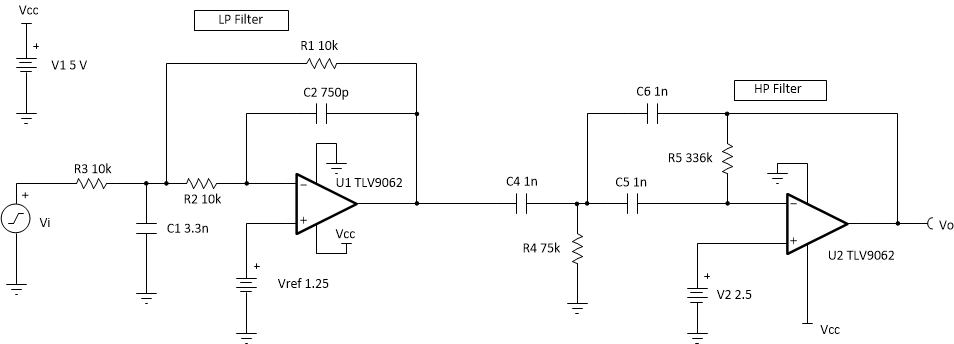
Design Notes
- Select an op amp with sufficient input common-mode range and output voltage swing.
- Add Vref to bias the input signal to meet the input common-mode range and output voltage swing.
- Select the capacitor values first since standard capacitor values are more coarsely subdivided than the resistor values. Use high-precision, low-drift capacitor values to avoid errors in fl and fh.
- To minimize the amount of slew-induced distortion, select an op amp with sufficient slew rate (SR).
- For HP filters the maximum frequency is set by the gain bandwidth (GBW) of the op amp. Therefore, be sure to select an op amp with sufficient GBW.
Design Steps
This BP filter design involves two cascaded filters, a low-pass (LP) filter and a high-pass (HP) filter. The lower cutoff frequency (fl) of the BP filter is 1kHz and the higher cutoff frequency (fh) is 10kHz. The design steps show an LP filter design with fh of 10kHz and a HP filter design with fl of 1kHz. See MFB low-pass filter design and MFB high-pass filter design in the circuit cookbook for details on transfer function equations and calculations.
LP Filter Design
- Use MFB low-pass filter design to
determine R1, R2, and R3.
- Use MFB low-pass filter design to
determine C1 and C2.
HP Filter Design
- Use MFB high-pass filter design to
determine C4, C5, and C6.
- Use MFB high-pass filter design to determine R4 and R5.
Design Simulations
AC Simulation Results
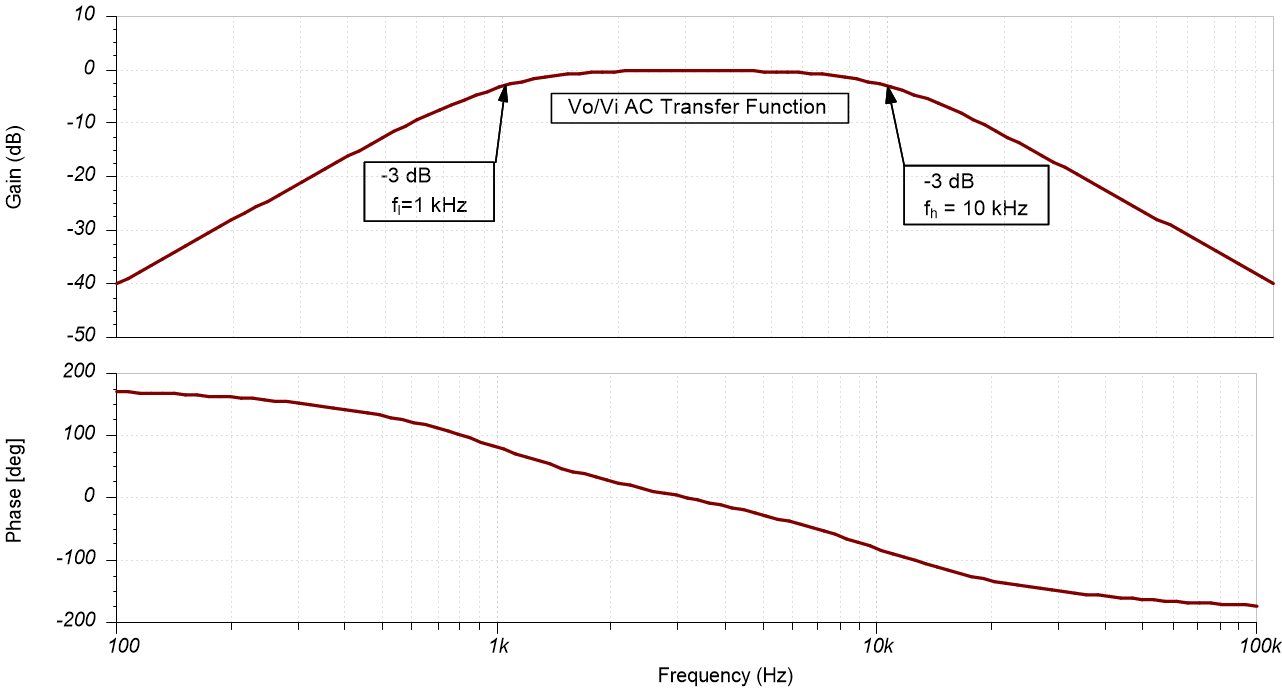
Transient Simulation Results
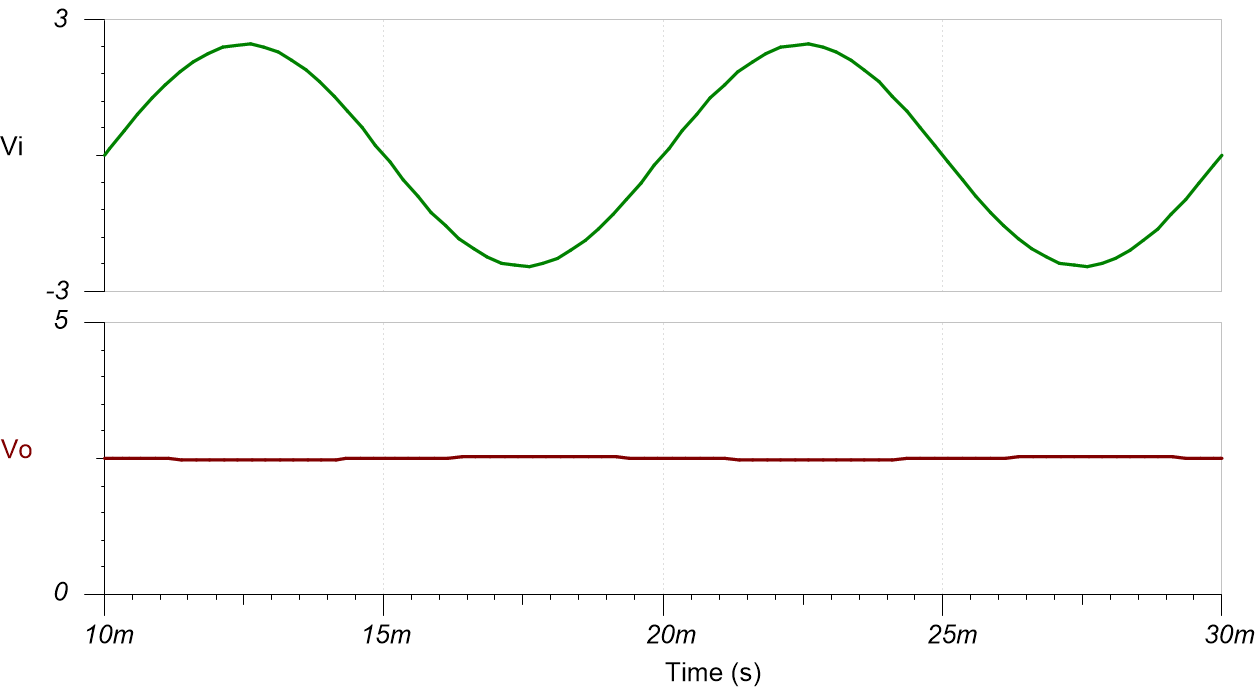 Filter Ouput in Response to a
5-Vpp, 100-Hz Input Signal (Gain = 0.01V/V)
Filter Ouput in Response to a
5-Vpp, 100-Hz Input Signal (Gain = 0.01V/V)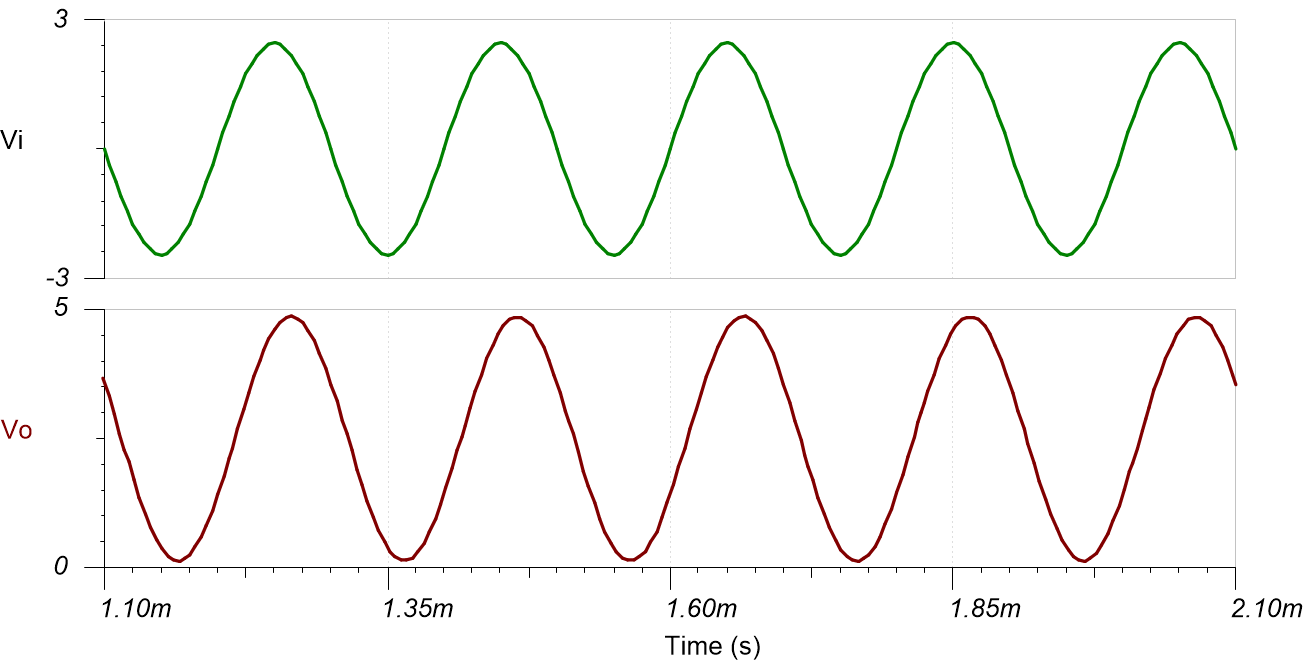 Filter Ouput in Response to a
5-Vpp, 5-kHz Input Signal (Gain = 1V/V)
Filter Ouput in Response to a
5-Vpp, 5-kHz Input Signal (Gain = 1V/V)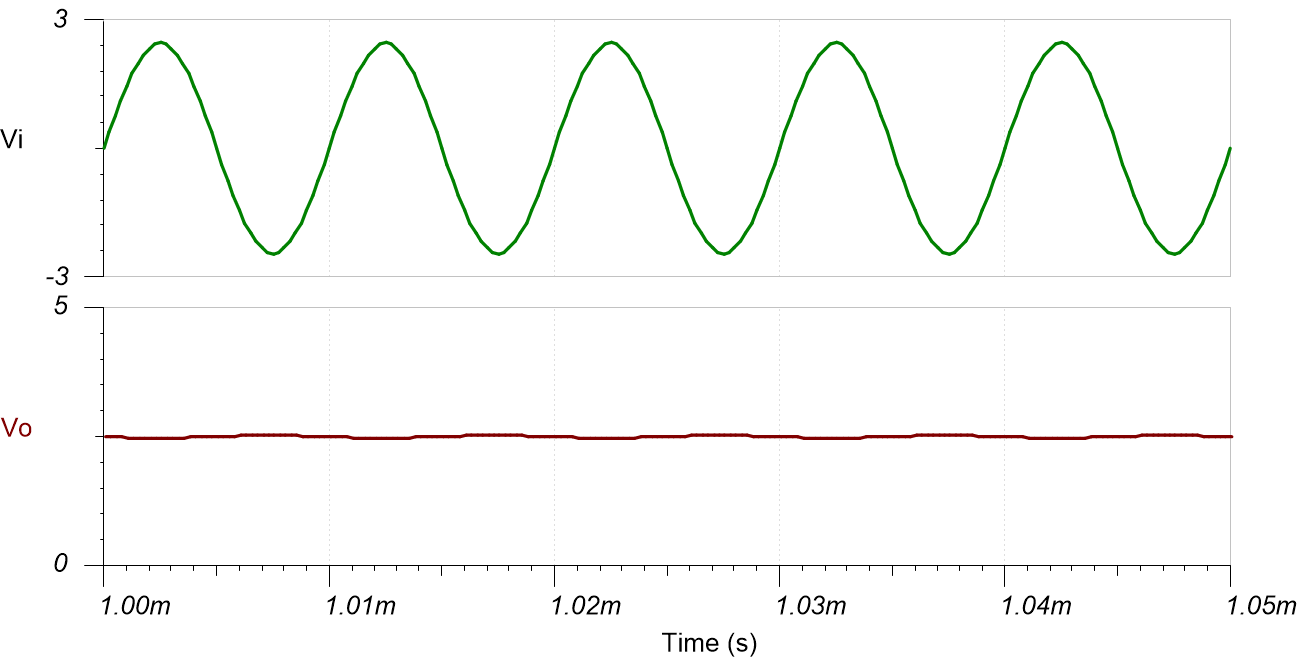 Filter Ouput in Response to a
5-Vpp, 100-kHz Input Signal (Gain = 0.01V/V)
Filter Ouput in Response to a
5-Vpp, 100-kHz Input Signal (Gain = 0.01V/V)Design References
- See Analog Engineer's Circuit Cookbooks for TI's comprehensive circuit library.
- SPICE Simulation File: SBOC596.
- TI Precision Labs.
Design Featured Op Amp
| TLV9062 | |
|---|---|
| Vss | 1.8V to 5.5V |
| VinCM | Rail-to-Rail |
| Vout | Rail-to-Rail |
| Vos | 0.3mV |
| Iq | 538µA |
| Ib | 0.5pA |
| UGBW | 10MHz |
| SR | 6.5V/µs |
| #Channels | 1, 2, 4 |
| www.ti.com/product/TLV9062 | |
Design Alternate Op Amp
| TLV316 | OPA325 | |
|---|---|---|
| Vss | 1.8V to 5.5V | 2.2V to 5.5V |
| VinCM | Rail-to-Rail | Rail-to-Rail |
| Vout | Rail-to-Rail | Rail-to-Rail |
| Vos | 0.75mV | 0.150mV |
| Iq | 400µA | 650µA |
| Ib | 10pA | 0.2pA |
| UGBW | 10MHz | 10MHz |
| SR | 6V/µs | 5V/µs |
| #Channels | 1, 2, 4 | 1, 2, 4 |
| www.ti.com/product/TLV316 | www.ti.com/product/OPA325 |